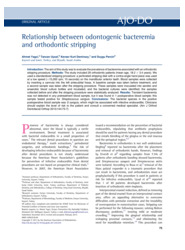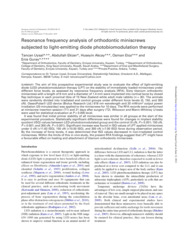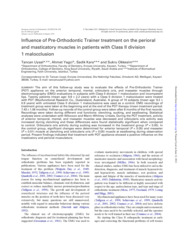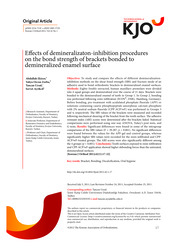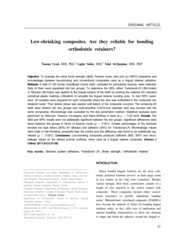Filtreler
Filtreler
Bulunan: 5 Adet 0.000 sn
Eser Sahibi : TANCAN UYSAL ✕Dergi Sayısı : 1 ✕Dergi Sayısı : 1 ✕Koleksiyon : DİŞ HEKİMLİĞİ FAKÜLT ... ✕Koleksiyon : KLİNİK BİLİMLER BÖLÜ ... ✕
